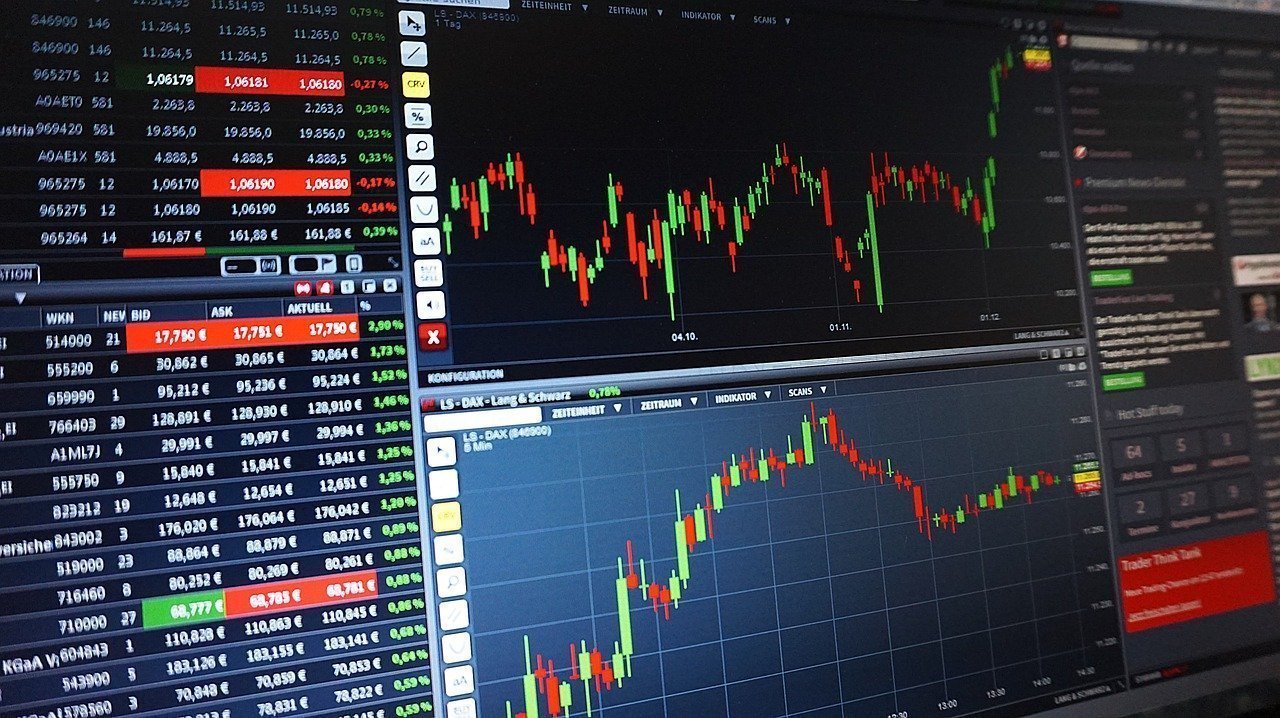Working capital funds is one of the significant requirements for the expansion and business growth of any corporate. There is always a requirement of funds whether it is small and medium or large organisations for expansion, business growth or setting up a new subsidiary or division of the company.
So in this article, we will discuss equity share capital (equity funds). Let’s first understand what does it mean by equity shares.
Table of Contents
What are Equity Shares?
We need to first understand what is equity funds to better understand the meaning of equity shares.
If any company whether it is public or private requires to raise funds from the financial market (public), there are two options available, either Debt funds or equity funds.
We will discuss here only about equity funds as of now. Therefore, Equity funds are those funds through which a corporates or business enterprise raise funds from the public/ investors like you and me by diluting their certain proportion of ownership.
The diluted proportion of ownership which the company decided can be bifurcated into hundred of millions of small shares. These small fractions of ownership of a company are known as Equity Shares of that company.
Hence, “we can define Equity Shares as the small fractional (elemental) value of ownership of a company is called equity shares of that company”.
Equity shares are issued for first time in the primary market through an initial public offering (IPO) and can be further traded (sale and purchase) in the secondary market.
An individual who wishes to invest in a certain company can purchase the equity shares of the same company either from primary market initially or from the secondary market (stock market).
One who purchases the equity shares of a company (say, L&T Ltd.) is called Equity Shareholders or shareholders (of L&T Ltd).
The price at which an investor buys the equity shares of a certain company is called shares price which is influenced by the stock market and can fluctuate (increase and decrease) with respect to time according to the performance of the company especially in terms of profit and future visions and projects of the company.
Therefore, the shares price of any company doesn’t remain constant and updated on a day to day basis and listed in stock exchange such as BSE or NSE.
Types of Equity Shares:

Equity share capital is the liabilities of any company which can be classified on the basis of different aspects which are explained below.
Authorised/ Registered/ Minimal Share Capital:
Authorised share capital is the maximum shares which a company is authorised to issue for raising funds from the public. This is also known as Registered or Minimal share capital. It can be changed from time to time depending on the requirement of the company by performing specific formalities.
Issued Share Capital:
Issued share capital are those shares which a company has actually decided to float into the market. We can say it could be some proportion of Authorised share capital.
Subscribed Share Capital:
Subscribe shares are those which the investors subscribe and agree upon to purchase.
Paid Up Share Capital:
Paid-up shares capital are those funds from which actually invest in the company. That means it is the actual funds which are raised from investors/ public to meet the objectives of the company.
Bonus Shares:
Sometimes companies issue some extra shares instead of disbursing dividend to their shareholders or both at the same time if the company makes a huge profit. These types of shares are known as Bonus Share. Bonus shares are issued in a certain ratio (1:1 or 2:1 or 1:2 etc) according to management’s decisions.
Right Shares:
If the company requires additional funds in future, it issues some extra shares called Right Shares. Right shares are preferably issued to existing shareholders typically at a price less than the current market price of equity shares.
Sweat Shares:
Sweat shares are the special types of shares which are allotted to special executives (Directors, CEO) and employees for their extraordinary contribution such as to hand-over IPR (Intellectual Property Rights) to the organisation.
Pros and Cons of Equity Shares:
There are numerous advantages and disadvantages of raising funds from equity funds if we look from the company’s perspective.
On the other hand, when it comes to investor’s aspect there are several advantages and disadvantages as well. We will discuss here from both investors as well as the company’s perspective.
Company’s (Issuer) Aspect:
Pros:
- Equity share capital is the prefered source of long term finance for any company.
- Funds raised from equity shares doesn’t cause any obligation on the issuing company. That means issuer doesn’t need to repay to the investors until circumstances of windup of the company.
- The company also doesn’t need to pay any fixed or any interest rate regularly unlike debt funds on the capital amount.
- The equity shares of the company are listed in the stock exchange and if the company performs excellently in terms of profits, the share price will definitely increase and hence the valuation of the company will also increase respectively.
- Company doesn’t require to create any charge on fixed assets (No collateral required) to float its equity shares (raise funds from the public) into the market.
- It is not mandatory to pay a dividend to shareholders after every financial year instead it is the management’s decision whether to declare dividend or not.
Cons:
- Equity shareholders of a company hold a certain proportion of ownership in the company, hence they have the right in the profit share of the company.
- Equity shareholders have voting rights during important affairs and decisions as well as in Annual General Meetings of the company. Due to this, a company cannot take any decision independently.
- Since a company has to dilute its ownership to issue equity shares, hence the profit share of real founders also decreases.
- Since the shares price of any company is stock market-driven, that means it is determined by demand and supply theory. Therefore, any negative news regarding the company can badly influence the valuation of the company.
- A company is not benefited in case of appreciation in share prices of the company.
Shareholders Aspects:
Pros:
- Equity shares offer more liquidity as all are listed in major stock exchanges in India such as NSE or BSE. Hence can be sold easily to any other investor any time. The Stock exchanges are regulated and monitored under the SEBI (Securities and Exchange Board of India), therefore, ensures minimal probability of defaults or disputes while trading of shares.
- Equity Shareholders are the real owners of the company and possess voting right during significant affairs and management decisions in the organisation.
- Equity shareholders are entitled to get a dividend periodically typically on every financial year depending upon the policies and profits of the company.
- Apart from the dividend, Equity shareholders can also make capital gain due to the price rise in share in the long run.
- They don’t need to bothers about the company’s profits at all, hence carry limited liability.
- Whenever the company require to arrange additional funds, it issues right shares and the existing shareholders are given not only priority but at the same shares are offered at a discounted price below the market price.
- Shareholders are also benefited from Bonus Shares from time to time depending on the policies of the company.
- When the share price of any company has increased at a higher value, then it is split into two or more shares. Therefore, shareholders are entitled to get split shares.
Cons:
- Equity shares are the high-risk instruments as the price of any share is determined by the demand and supply theory. Thus the shares price of any company in future is unpredictable.
- The dividend yield is not fixed or certain in case of ordinary equity shareholders.
- The price of equity shares are more volatile and fluctuating in nature, hence carry more risk as compared to other modes of investment like debt funds.
- Equity shares are not backed up by any collateral like debt funds, therefore investors can not claim on the company for the realization until the company don’t go to bankruptcy.
- It does not provide a fixed interest rate or coupon such as debt funds like debentures, Fixed Deposits, government securities like T- Bills, Government Bonds etc.
See also: Difference between Debt and Equity Funds
Different Terminologies regarding Equity Shares:
There are several terms, price concepts and terminologies used when it comes to shares and stock market. Let me explain a few of significant concepts used frequently.
Face Value (Par Value):
The dividends are calculated on the basis of the Face value of shares of any company irrespective of current market prices. Also, it is the face value of any share which is recorded in the account book.
Issue Price:
At which price the company offers its shares to investors is called Issue Price of a share.
Share Premium/ Share at Discount:
When a share is issued a price higher than the face value is known as share premium, on the other hand, if the shares are issued at a price lower than the face value is called Share at discount.
P/E Ratio:
Price to Earnings Ratio (P/E Ratio) is calculated as the current share price divided by its EPS (Earning per Share). It is used by investors and analysts to predict the returns on investment cost ie. How costly is the share with respect to return?
Dividend Yield:
Dividend Yield displayed in form of percentage is the amount of money which is paid by a company to its shareholders over a financial year (could be Quarterly or half-yearly).
Market Value:
The market value of a share refers to the price at which it is being traded in the stock exchanges. It is also known as Stock Market value.
Conclusion:
Hope you have understood the basics of equity shares. When it comes to investment equity shares might provide better returns in the long run as compared to other financial instruments because it offers capital gain due to price rise as well as the dividend paid by the company.
On the other hand, equity shares are a high-risk investment as it doesn’t back up by any collateral and because of price fluctuation, the investors can suffer loss as well.
Related Articles:
What are Government Securities?
Difference between Bonds and Debentures
Disclaimer: Above article is for the information purpose only. ThesisBusiness does not provide any suggestion regarding any types of investment.
